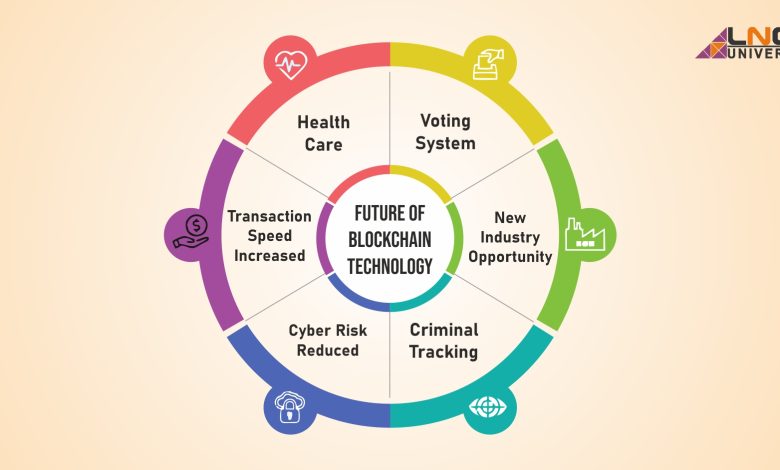Cryptocurrencies and the Future of Work

- Understanding the impact of cryptocurrencies on the traditional job market
- How blockchain technology is revolutionizing the way we work
- The rise of remote work opportunities in the cryptocurrency industry
- Exploring the potential of decentralized autonomous organizations (DAOs) in the future of work
- Challenges and opportunities for freelancers in the crypto economy
- The role of smart contracts in reshaping employment relationships
Understanding the impact of cryptocurrencies on the traditional job market
As cryptocurrencies continue to gain popularity and acceptance in the financial world, their impact on the traditional job market is becoming more evident. The rise of cryptocurrencies has led to the creation of new job opportunities while also reshaping existing roles in various industries.
One of the ways in which cryptocurrencies are influencing the job market is through the demand for blockchain developers. These professionals are essential for creating and maintaining the decentralized networks that cryptocurrencies operate on. As a result, there has been a surge in the need for skilled blockchain developers across different sectors.
Furthermore, the growing acceptance of cryptocurrencies as a form of payment has led to an increased demand for professionals with expertise in cryptocurrency trading and analysis. Companies are looking for individuals who can help them navigate the complexities of the cryptocurrency market and make informed investment decisions.
On the other hand, the rise of cryptocurrencies has also raised concerns about the potential displacement of traditional roles. As more companies adopt blockchain technology and cryptocurrencies, there is a possibility that some traditional jobs may become obsolete. This shift could require workers to acquire new skills or transition into different roles to remain competitive in the evolving job market.
In conclusion, the impact of cryptocurrencies on the traditional job market is multifaceted. While they have created new opportunities in sectors such as blockchain development and cryptocurrency trading, they have also raised questions about the future of traditional roles. As the cryptocurrency market continues to evolve, it is essential for workers to stay informed about the changes happening in their industries and be prepared to adapt to the shifting job landscape.
How blockchain technology is revolutionizing the way we work
Blockchain technology is transforming the way we work by providing a secure and transparent platform for transactions. This decentralized system eliminates the need for intermediaries, reducing costs and increasing efficiency. Companies are increasingly adopting blockchain to streamline processes and improve trust among stakeholders.
One of the key benefits of blockchain technology is its ability to create smart contracts, which are self-executing agreements with the terms of the contract directly written into code. This automation reduces the need for manual intervention and minimizes the risk of fraud. Smart contracts are revolutionizing the way we conduct business by ensuring that agreements are enforced without the need for intermediaries.
Moreover, blockchain technology enables the creation of digital identities, allowing individuals to securely store and manage their personal information. This not only enhances privacy and security but also simplifies processes such as identity verification and background checks. As a result, companies can onboard employees more efficiently and securely.
Overall, blockchain technology is reshaping the future of work by providing a decentralized, secure, and efficient platform for transactions. As more companies recognize the benefits of blockchain, we can expect to see widespread adoption across various industries, leading to a more transparent and trustworthy business environment.
The rise of remote work opportunities in the cryptocurrency industry
The rise of remote work opportunities in the cryptocurrency industry has been a game-changer for many professionals looking to break into this exciting field. With the increasing popularity of cryptocurrencies, companies in the industry are embracing remote work as a way to attract top talent from around the world. This shift towards remote work has opened up a wealth of opportunities for individuals who may not have access to traditional office settings or who prefer the flexibility of working from home.
One of the key advantages of remote work in the cryptocurrency industry is the ability to work with a diverse team of professionals from different backgrounds and locations. This diversity can lead to more innovative ideas and solutions, as team members bring unique perspectives to the table. Additionally, remote work allows professionals to have a better work-life balance, as they can set their own schedules and work from anywhere with an internet connection.
Another benefit of remote work in the cryptocurrency industry is the opportunity for professionals to gain valuable experience in a rapidly growing field. Working remotely allows individuals to take on new challenges and projects, which can help them develop new skills and advance their careers. Additionally, remote work can provide a level of flexibility that is not always available in traditional office settings, allowing professionals to tailor their work environment to suit their needs.
Overall, the rise of remote work opportunities in the cryptocurrency industry is changing the way professionals approach their careers. With the ability to work from anywhere in the world, individuals can take advantage of the growing demand for cryptocurrency expertise and contribute to this exciting industry from the comfort of their own homes. As remote work continues to gain popularity, the cryptocurrency industry is poised to attract top talent from around the globe, driving innovation and growth in the years to come.
Exploring the potential of decentralized autonomous organizations (DAOs) in the future of work
Decentralized Autonomous Organizations (DAOs) are a groundbreaking concept that has the potential to revolutionize the future of work. DAOs are essentially organizations that are run by smart contracts on the blockchain, eliminating the need for traditional hierarchical structures and intermediaries. This opens up a world of possibilities for creating more efficient, transparent, and democratic work environments.
One of the key advantages of DAOs is their ability to operate autonomously, without the need for human intervention. This means that decisions within the organization can be made quickly and efficiently, based on predefined rules and algorithms. This can lead to faster decision-making processes and greater agility in responding to changing market conditions.
Furthermore, DAOs can help to eliminate bias and discrimination in the workplace by relying on code rather than human judgment. This can create a more inclusive and equitable work environment where decisions are based on merit and performance rather than subjective factors.
Overall, the potential of DAOs in the future of work is immense. By leveraging blockchain technology and smart contracts, organizations can create more efficient, transparent, and democratic work environments that empower employees and drive innovation. As the technology continues to evolve, we can expect to see DAOs play an increasingly important role in shaping the future of work.
Challenges and opportunities for freelancers in the crypto economy
Freelancers in the crypto economy face a unique set of challenges and opportunities. One of the main challenges is the volatility of cryptocurrency prices, which can impact the value of payments received for services rendered. However, this volatility also presents opportunities for freelancers to potentially earn higher returns on their investments.
Another challenge for freelancers in the crypto economy is the lack of regulation and oversight, which can make it difficult to resolve disputes or ensure payment for work completed. On the other hand, this lack of regulation also means greater freedom and flexibility for freelancers to work on projects of their choosing without being tied down by traditional employment contracts.
One of the key opportunities for freelancers in the crypto economy is the ability to work with clients from around the world without the need for expensive currency conversions or international transaction fees. This can open up new markets and opportunities for freelancers to expand their client base and increase their earning potential.
Overall, freelancers in the crypto economy must navigate a rapidly changing and sometimes uncertain landscape. By staying informed about market trends, diversifying their income streams, and building strong relationships with clients, freelancers can position themselves to thrive in this new and exciting digital economy.
The role of smart contracts in reshaping employment relationships
Cryptocurrencies have introduced a new way of conducting transactions and reshaping traditional employment relationships. Smart contracts, which are self-executing contracts with the terms of the agreement directly written into code, play a crucial role in this transformation. These contracts are stored on a blockchain, ensuring transparency and security in the agreement between parties.
Smart contracts have the potential to revolutionize the future of work by automating various aspects of employment relationships. They can facilitate payments, verify credentials, and enforce agreements without the need for intermediaries. This not only streamlines processes but also reduces costs and minimizes the risk of fraud.
By utilizing smart contracts, employers and employees can establish trust without relying on a central authority. This decentralized approach empowers individuals to engage in peer-to-peer transactions, creating a more efficient and equitable work environment. Additionally, smart contracts can help in resolving disputes by automatically enforcing predefined rules, ensuring fair outcomes for all parties involved.
Overall, the integration of smart contracts in employment relationships has the potential to enhance productivity, transparency, and trust in the workplace. As cryptocurrencies continue to gain traction, the role of smart contracts in reshaping the future of work will become increasingly significant, paving the way for a more decentralized and efficient labor market.






